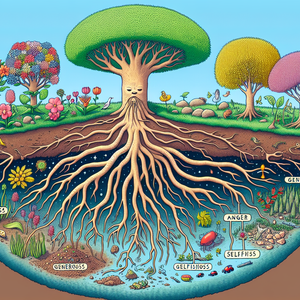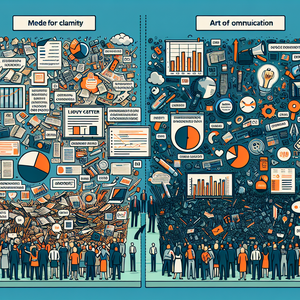The Art of Virtual Recognition: Enhancing Morale and Productivity in Remote Workplaces

Recognition is universally acknowledged as a powerful motivator. It reinforces positive behavior, encourages employees to strive for excellence, and builds a sense of belonging within a team. In traditional office settings, recognition often occurs organically—through spontaneous praise during meetings, celebratory events, or simple gestures like a pat on the back. However, in a virtual environment, these natural opportunities can easily be overlooked, leading to feelings of isolation and undervaluation among team members. Research backs up the necessity of recognition in the workplace. According to Gallup, employees who receive regular recognition and praise are more productive and engaged than those who do not. This is especially pertinent in remote settings, where employees may not have frequent face-to-face interactions with colleagues or managers. Intentional recognition becomes crucial to counteract isolation and to maintain a cohesive team culture.
Creative Ideas for Virtual Recognition Programs
To cultivate an environment of appreciation in remote workplaces, organizations can implement various creative recognition programs: 1. Peer Recognition Platforms: Establish a peer recognition platform that allows employees to acknowledge each other’s efforts. Tools like Bonusly or Kudos facilitate team members giving shout-outs for specific achievements. This fosters a culture of appreciation and encourages collaboration, as employees take an active role in recognizing their peers. 2. Virtual Awards Ceremonies: Organize regular virtual awards ceremonies to honor outstanding contributions. Categories can include “Employee of the Month” or “Best Team Player.” By adding fun elements such as themes, guest speakers, and prizes, these events can enhance engagement and create a celebratory atmosphere. 3. Personalized Recognition: Tailor recognition efforts to individual preferences. Some employees may prefer public acknowledgment, while others might appreciate a private message or a small gift. Understanding what resonates with each team member can significantly enhance the impact of recognition initiatives. 4. Celebrating Milestones: Recognize personal and professional milestones, including work anniversaries, project completions, or personal achievements. A simple video call where team members share their congratulations can enhance a sense of community and connection, making each individual feel valued. 5. Interactive Recognition Boards: Create a digital “Recognition Wall” where team members can post messages of appreciation, photos, or fun anecdotes about their colleagues. This visual representation of gratitude serves as a constant reminder of the team’s commitment to support one another.
Supporting Evidence of Impact
The benefits of effective virtual recognition strategies are well-documented. For instance, a survey conducted by Officevibe found that organizations with strong recognition programs experience 31% lower voluntary turnover rates. Furthermore, a study published in the Harvard Business Review indicated that companies with high employee recognition are 2.5 times more likely to report positive business outcomes. Additionally, organizations that prioritize employee recognition tend to cultivate a positive work environment that attracts top talent. In a competitive job market, being recognized for valuing and appreciating employees can serve as a significant differentiator.
As remote work continues to redefine the landscape of the modern workplace, the importance of virtual recognition cannot be overstated. Creating an environment where every team member feels valued and appreciated—regardless of their physical location—is essential for fostering engagement and productivity. By implementing innovative recognition strategies, organizations can enhance employee morale, boost productivity, and cultivate a culture of collaboration and support. In a world where connection is often challenged by distance, virtual recognition serves as a bridge, reminding us that appreciation knows no boundaries. As we navigate this new reality, let us embrace the art of virtual recognition and commit to making every employee feel seen, valued, and celebrated. By doing so, we not only enhance individual experiences but also drive collective success in our increasingly digital workplaces.
Virtual Employee Engagement Specialist
Tech companies, remote-first organizations, and HR consulting firms
Job Responsibilities
Develop and implement virtual recognition programs that enhance employee engagement and morale in remote settings.
Utilize various digital platforms to facilitate peer-to-peer recognition and feedback loops.
Collaborate with HR and management to align recognition initiatives with company culture and values.
Remote Team Coordinator
Job Responsibilities
Manage logistical aspects of remote team operations, including scheduling virtual meetings and organizing recognition events.
Act as a liaison between team members and management to ensure open lines of communication and feedback.
Create and maintain digital platforms for employee recognition, ensuring they are user-friendly and engaging.
Unique Skills
Strong organizational skills
Proficiency in remote collaboration tools (e.g., Zoom, Slack, Trello)
Digital Marketing Manager (Employee Advocacy)
Marketing agencies, large corporations with a focus on employer branding, and startups
Job Responsibilities
Design and execute campaigns that promote employee achievements and recognition on social media and internal platforms.
Collaborate with HR to highlight employee stories and successes that align with brand values and culture.
Analyze engagement metrics to improve recognition strategies and employee advocacy efforts.
Learning and Development Manager (Remote Workforce Focus)
Job Responsibilities
Create training programs that include modules on effective virtual recognition and employee engagement strategies.
Evaluate the effectiveness of recognition initiatives and recommend improvements based on employee feedback.
Work cross-functionally with teams to integrate recognition into the overall employee experience and professional development.
Unique Skills
Experience in adult learning theories
Familiarity with e-learning platforms
Strong project management skills
Organizational Development Consultant (Remote Work Specialization)
Consulting firms, HR tech companies, and organizations undergoing digital transformation initiatives
Job Responsibilities
Assess and advise companies on best practices for virtual recognition and team culture in remote environments.
Conduct workshops and training sessions to educate leaders on the importance of recognition and employee engagement.
Implement customized strategies to improve organizational culture and reduce turnover in remote teams.


